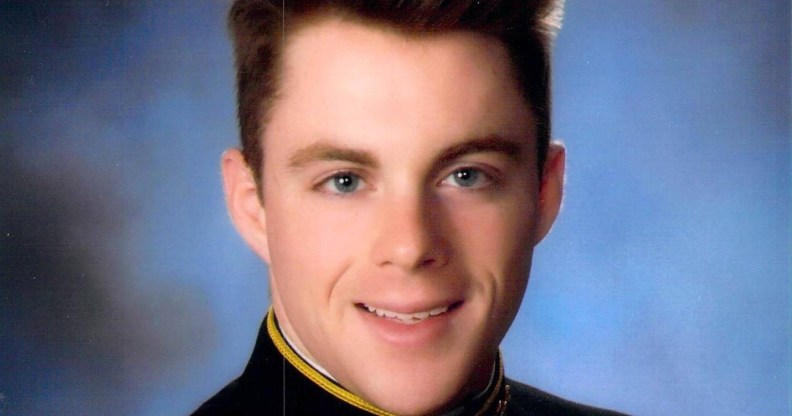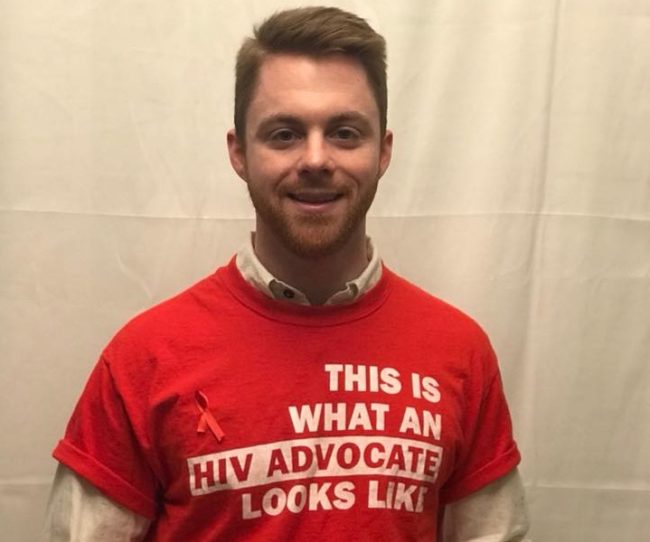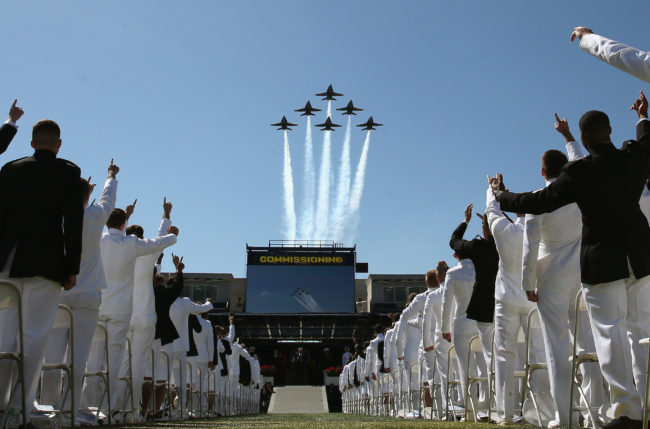Gay cadet discharged after diagnosis fights military HIV ban

Kevin Deese was told in 2014 he was not going to be commissioned, and was eventually honorably discharged in 2017. (Kevin Deese/Facebook)
A gay cadet’s Navy career came to an abrupt end after a routine blood test revealed he was HIV-positive—but he has since joined the fight against the military HIV ban.
Kevin Deese was informed of his diagnosis in April 2014, barely a month before his graduation from the US Naval Academy in Annapolis, Maryland. He was told he could graduate, but wouldn’t be commissioned.
Deese had been dreaming of serving in the military since he was nine years old, following in his brother’s footsteps, he told HIV/AIDs specialised news outlet The Body.
The HIV-positive diagnosis came as a surprise, the 26 year old recalled.
“It was not something I thought I had been at risk for. Then he says that I will not be commissioning as an officer along with my classmates. It was a double whammy—so much stigma and shame, everything I had worked for and that the Naval Academy had paid to educate me for,” he said.

Kevin Deese publicly came out as a gay HIV-positive man in a Facebook post in April and is now fighting against the military HIV ban. (Kevin Deese/Facebook)
The former cadet, who was only honourably discharged from the military in 2017, after trying to fight for his right to serve as best he could, said he did not receive support.
“I spoke with the chaplain and the brigade medical officer. ‘We’re not going to abandon you,’ they said. But really no one had my back. It was presented as very cut-and-dry with no possibility to get a waiver, no process. One of the commandants had prepared talking points for me and had scrawled ‘not a death sentence’ on a Post-It note,” Deese told TheBody.
US military HIV ban condemned as ‘archaic’
Deese was not the first person to be confronted with the military HIV ban.
The armed forces first began screening all applicants for HIV in 1985. The Department of Defense then imposed a ban on appointment or enlistment of HIV-positive people under the George H.W. Bush administration in 1991.
While the policy has since been revised to some degree, it remained restrictive of the kind of deployment HIV-positive servicemen could hope for—and continued to bar HIV-positive people from enlisting or commission as officers.
“I am an HIV-positive gay man who’s here for people who don’t feel they can or should be out as being positive.”
— Kevin Deese
President Donald Trump recently implemented an even stricter version of the policy. Under the “Deploy or Get Out!” policy, the military is required to track the number of non-deployable servicemembers.
If they cannot attain deployable status by the following year, they will be selected for involuntary removal.
Sergeant Nick Harrison, who said was affected by the policy, sued the Pentagon over the military HIV ban with the assistance of Lambda Legal and OutServe-SLDN in May.
Scott Schoettes, Counsel and HIV Project Director at Lambda Legal said at the time: “Nick’s situation is the perfect example of just how archaic and harmful the military policies regarding people living with HIV really are.”
Deese has since joined Harrison’s lawsuit. He also came out as a gay, HIV-positive man to the world in a public post published on Facebook in April, four years since he received the diagnosis.

A U.S. Naval Academy ceremony held on May 23, 2014 in Annapolis, where Kevin Deese graduated without commissioning as an officer due to the military HIV ban. (Mark Wilson/Getty)
In his post, Deese recognised his position of privilege “as a white cisgender male from a comfortable middle class background” and explained he felt it was his duty to stand up for those who could not.
“At the Naval Academy, we were all taught the story of 2004 graduate and Marine 1st Lt. Travis Manion, who made the ultimate sacrifice in Iraq in 2007. He had a mantra that served as the guiding force in his life: ‘If not me, then who?'” he wrote—a message that still resonated with him,
In the photo accompanying the post, Deese was holding a board with the words “If not me, then who?” written across it.
Deese wrote: “I’m a little scared but determined to take additional action by putting out to the world that I am an HIV-positive gay man who’s here for people who don’t feel they can or should be out as being positive—and who’s not here for your HIV stigma, society.”

